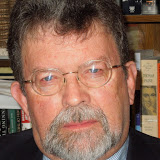According to Professor Merridale the widespread ignorance about Ivan is the consequence of distortions, pervasive anti-Russian stereotypes in the West, and self-serving heroic myths propagated, first in Soviet Union, then in Russia.
Merridale notes that, in 1950, the U.S. Army borrowed racist descriptions provided by Nazi officers to create a pamphlet that described "the peculiarities of the Russian soldier." Ivan was described as "semi-Asiatic," "primitive and unassuming," and "innately brave but morosely passive when in a group." Ivan acts on "instinct," and "is subject to moods which to a westerner are incomprehensible."
But, if Western racism rendered Ivan less than human, the Soviet Union's "hero myth" transformed Ivan into a sanitized hero almost totally devoid of the many human failings that have afflicted soldiers at war since the beginning of time. As Merridale interprets the myth, Ivan "is simple, healthy, strong and kind, far-sighted, selfless, and unafraid of death. He almost never dwells on the dark side of war. Indeed, his gaze is turned toward the future, a bright utopia for which he is prepared to sacrifice his life."
Utilizing declassified secret police reports, the Red Army's internal notes about its soldiers' wartime morale, bundles of soldiers' letters, diaries, her travels to battle sites and nearly two hundred interviews with surviving veterans (most of whom probably are no longer alive in 2015), Merridale uncovered significant new evidence that undermined the hero myth.
That's not to say, of course, that Ivan performed no heroic deeds. For example, Merridale salutes the courage of the steadfast Ivans, who defended Stalingrad for months during late 1942.
She especially notes the fate of a marine called Pankaiko. "As the doomed man prepared to lob a gasoline-filled bottle at a line of German tanks, a bullet ignited the fuel, turning him into a pillar of flame. But the marine was still alive, and somehow, with some last reserve of rage or maybe some grim reflex, he managed to reach for a second missile [and] run right up to the German tank, and smash the bottle against the grille of the engine hatch. A second later an enormous sheet of flame and smoke engulfed both the tank and the hero who had destroyed it."
Such heroism in action also was reflected in heroism of determination. In November 1941, in a village outside of Moscow, the partisan heroine, Zoya Kosmodemyanskaya, was captured after attempting to set fire to a German-occupied house. Immediately before her hanging, she reportedly told her audience: "You can't hang all 190 million of us." (Stahel, p. 203) We've heard about such indomitable Russian determination before, such as when Clausewitz warned: "It is impossible to hold or conquer Russia."
It's hardly news that Ivan loved to drink samogon (moonshine), which also served as currency. He smoked cheap tobacco (makhorka) and cursed with imagination, "piling the profanities in stacks." He sang while he marched, as well as at festivals and parades. He composed the short folk poems (chastushki) that peasants had been composing for generations. But, because the poems were often satiric, erotic or subversive, they were not mentioned in any of the official hero myths constructed by Soviet propagandists. The hero myths also failed to mention the battle stress and trauma that so many Ivans were shamed into repressing.
But Professor Merridale does her greatest damage to the hero myth when she substantiates her assertion that "whole areas of wartime life, including desertion, crime, cowardice, and rape, were banned from public scrutiny." Without a doubt, the widespread use of "blocking detachments" substantiates Merridale's allegation about desertion.
Moreover, it is impossible to dispute Merridale's assertion that "tens of thousands of German women and girls undoubtedly suffered rape at the hands of Soviet troops; the figure may well have reached hundreds of thousands." Yet, one needs to remember that, in their war of annihilation, the rape of Soviet women by German soldiers was not considered a crime by German authorities and that up to 10,000,000 Soviet women were raped by German soldiers. According to Wendy Jo Gertjejanssen, the author of a doctoral dissertation titled, Victims, Heroes, Survivors: Sexual Violence on the Eastern Front During World War II , "Both the Russians and the Germans have yet to accept responsibility for mass rape, and the Germans for their extensive system of sexual slavery."
Recently, Professor Merridale's study of Ivan has been challenged by Jochen Hellbeck in his new book, Stalingrad: The City that Defeated the Third Reich. Professor Hellbeck attempts to demonstrate that, contrary to Merridale's assertions, the idea of heroism was not just in the mind of sanitizing Soviet propagandists, but was quite alive and prevalent in the belief system of many Ivans. He credits the "Communist party's enormous effort to condition the troops" (p.19) for such heroism.
Based upon the transcripts of "215 eyewitness accounts: from generals, staff officers, troop commanders, simple foot soldiers, commissars, agitators, sailors of the Volga Military Flotilla, nurses, and a number of civilians -- engineers, laborers, and a cook among them -- who worked in the bombed-out city or were just struggling to survive there" (p. 4), Professor Hellbeck concludes: When the delegation of historians, led by Professor Isaak Mints from Moscow State University, arrived in Stalingrad in late December 1942 to document the views of the heroic defenders of Stalingrad "they encountered soldiers who had fully incorporated Soviet notions of heroism and cowardice and were conversant about the battle's political and historical significance." (p. 68)
That would suggest that Ivan's need for revenge had been effectively redirected to meet the historic challenge at hand.
Given the extraordinary role played by the Soviet Union's "greatest generation," let us, on this Victory Day, take to heart the famous words written by poet Olga Berggolts: "Let No One Forget, Let Nothing Be Forgotten"
(Note: You can view every article as one long page if you sign up as an Advocate Member, or higher).





